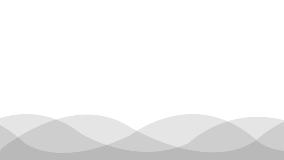
We introduce a conceptual framework and an interventional calculus to steer, manipulate, and reconstruct the dynamics and generating mechanisms of dynamical systems from partial and disordered observations based on the contributions of each of the systems, by exploiting first principles from the theory of computability and algorithmic information. This calculus entails finding and applying controlled interventions to an evolving object to estimate how its algorithmic information content is affected in terms of positive or negative shifts towards and away from randomness in connection to causation. The approach is an alternative to statistical approaches for inferring causal relationships and formulating theoretical expectations from perturbation analysis. We find that the algorithmic information landscape of a system runs parallel to its dynamic attractor landscape, affording an avenue for moving systems on one plane so they can be controlled on the other plane. Based on these methods, we advance tools for reprogramming a system that do not require full knowledge or access to the system's actual kinetic equations or to probability distributions. This new approach yields a suite of powerful parameter-free algorithms of wide applicability, ranging from the discovery of causality, dimension reduction, feature selection, model generation, a maximal algorithmic-randomness principle and a system's (re)programmability index. We apply these methods to static (e.coli TF network) and to evolving genetic regulatory networks (differentiating Th17 cells, and CellNet). We highlight their ability to pinpoint key elements (genes) related to cell function and cell development, conforming to biological knowledge from experimentally validated data and the literature, and demonstrate how the method can reshape a system's dynamics in a controlled manner through algorithmic causal mechanisms.
An algorithmic information calculus for causal discovery and reprogramming systems.pdf

"KAUST shall be a beacon for peace, hope and reconciliation, and shall serve the people of the Kingdom and the world."
King Abdullah bin Abdulaziz Al Saud, 1924 – 2015
Thuwal 23955-6900, Kingdom of Saudi Arabia
© King Abdullah University of Science and Technology. All rights reserved